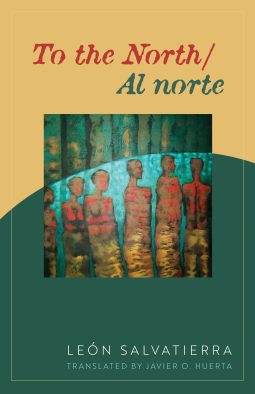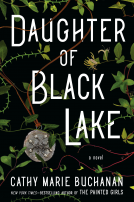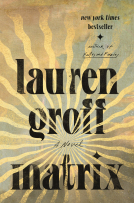
To the North/Al norte
Poems
by Leon Salvatierra
This title was previously available on NetGalley and is now archived.
Send NetGalley books directly to your Kindle or Kindle app
1
To read on a Kindle or Kindle app, please add kindle@netgalley.com as an approved email address to receive files in your Amazon account. Click here for step-by-step instructions.
2
Also find your Kindle email address within your Amazon account, and enter it here.
Pub Date Nov 08 2022 | Archive Date Nov 30 2022
Talking about this book? Use #TotheNorthAlnorte #NetGalley. More hashtag tips!
Description
Salvatierra mixes lyrical and prose poems to explore the experience of exile in a new country. His powerful metaphors and fresh images inhabit spaces fraught with the violence, anxiety, and vulnerability that undocumented Central American migrants commonly face in their transnational journeys. His vivid memories of Nicaragua tie the personal experiences of his poetic subjects to the geopolitical history between the Central American region and the United States.
Advance Praise
“The poetry here is at once intimate and public, which makes for a complex and rich alchemy. León Salvatierra’s range of registers is breathtaking.”
—Francisco Aragón, poet, editor, director of Letras Latinas at the Institute for Latino Studies, University of Norte Dame, and author of After Rubén
“To the North/Al norte makes poetry feel essential, that without it, Salvatierra’s speakers would become unmoored, losing everything that they have tried so hard to recover. Salvatierra clearly revels in language. . . . This collection is a significant contribution to the growing body of undocumented literature as well as Latinx literature.”
—Maceo Montoya, professor, University of California, Davis, author of Preparatory Notes for Future Masterpieces: A Novel
Marketing Plan
• The only book of poetry from Nicaragua to be printed in English in U.S.
• Bilingaul printing.
• Exploration of the transnational experience of the Central American diaspora that emerged from the civil wars of the 1980s.
Available Editions
| EDITION | Other Format |
| ISBN | 9781647790615 |
| PRICE | $18.95 (USD) |
| PAGES | 100 |
Featured Reviews
“To the North/Al norte” – Leon Salvatierra (translated from Spanish by the author and Javier O Muerta)
I was drawn to this because I noticed it was a bilingual book, Spanish and English, before realising that it was a poetry collection – yet again, the genre I really struggled to read and review haha.
Happily, it turned out that I really got caught up in this collection of poetry, not least because of the story of the author himself. Salvatierra is a Nicaraguan poet and professor who fled civil war in the 1908s as a teenager and was forced ‘al norte’ to seek asylum in the United States.
“The accented syllable in my name had to take the blow: Léon”
After 11 long years, Salvatierra achieved naturalised citizen status, and the poems and prose in this book deal with the feelings and upheaval of his early life, from his father’s infidelity and early death of alcoholism, to feeling of exile and outsiderness in various US schools, struggling to learn English and find a place in a new home.
While perhaps lacking any stylistic invention, the emotional heft of the collection makes up for it. Salvatierra has a good handle on vivid imagery and a story that lends itself to such, and the range of ideas and topics covered in the collection is impressive, at least to a poetry novice such as myself.
If you’re interested in the immigrant experience in America, then Salvatierra is a voice worth listening to, and this collection is worth seeking out. Published 8th of November by University of Nevada Press, my thanks to them and @netgalley for a copy of this book in exchange for an honest review.
 B. L, Reviewer
B. L, Reviewer
A promising voice in the world of poetry in my Nicaragua, a country where "de poetas y locos, todos tenemos u poco" (we all have a little bit of poets and crazy people).
Obviously, this author cannot be compared to Rubén Darío, but in his favor it can be said that his work has an interesting metric in which the prose seems like poetry and the poetry is, sometimes, almost prose.
This book was originally published in 2012 by the Editorial Universitaria of the University of Nicaragua and now the University of Nevada Press brings us a dual language edition.
I thank the author, the University of Nevada Press, and NetGalley for the opportunity to read this story. The opinion I have expressed above is based solely on what I think of this book.
 Sarah-Hope P, Educator
Sarah-Hope P, Educator
Leon Salvatierra's To the North/Al Norte offers a powerful view of the lived reality of migrating from Central America (Nicaragua to be specific) to the U.S. While these poems are unabashedly autobiographical, they also are painting a larger picture of the pressures underlying this migration, life in a new nation, and the displacement migrants encounter when returning to what once was home. Salvatierra's poetic voice is clear and direct. He makes constructive use of repetition with minor variations to broaden his topics as he explores them. Having a bilingual edition of this groups of poems is blessing. The translations are adept, but it's also rewarding to move between translation and original, pondering their nuances.
I received a free electronic review copy of this title from the publisher via NetGalley; the opinions are my own.
 Account D, Reviewer
Account D, Reviewer
'To the North/ Al norte', translated by Javier O. Huerta, is a bilingual poetry collection that retraces Salvatierra’s shaky steps from Nicaragua to the United States, taken at the tender age of fifteen as a result of the civil wars that ravaged Central America in the 1980s. After eleven years as an undocumented immigrant, Salvatierra gained the status of a naturalized citizen; one who grapples with notions of exile and violence in a body of work that feels struck through with arrows.
The collection begins by addressing the reader, unfurling Salvatierra’s backstory with a lyrical undertone, “The accented syllable in my name had to absorb the blow: León.” Soon, the mind housing the name gets caught up in the “fraud” of a falsified existence, from its age to its “undocumented life” post-rupture. Salvatierra refers to the “nine Kafkaesque years” he spent erasing the horizon of his education, trapped in the catch-22 of a denied right to asylum.
From this point on, a sore emotional dissonance makes itself known. Salvatierra’s relationship with his father — whose infidelity often drew the neighbors’ fingers to his son’s chest, and who died young from alcohol abuse — demands a breaking off from his roots, “And while it has never been easy, I have renounced his inheritance.” It makes sense, then, that memory becomes a point of fixation, and that the expected and unexpected collide.
In 'Memory', Salvatierra stirs intrigue with the verses, “where some children played/ I couldn’t tell if they were little men/ or little women/ because they were naked.” This subversion of our expectations, specifically the thought that the body should naturally betray one’s sex, swings like a pendulum toward trodden territory, “I saw that I too was a slave/ to the calmness of my sheets/ to paydays/ addicted to a digital sleepiness.”
While this fluctuation might seem uneven, it also mimics the cadence of life. From the central youth to remote adulthood, no two days ever find themselves in the same state of enraptured volatility. This becomes apparent in 'Upon Returning', which dislocates its verses to portray the upheaval of “flying over rivers,” of crossing Guatemala and Mexico to arrive at the United States’ “paralyzed dream.”
In the titular poem, as the race across Mexico’s border gains velocity, a fellow traveler reintroduces Salvatierra to the horrors of premature death, “spewing white foam from his mouth and convulsing like he was possessed by a demon.” But then, in another corner of the collection, we discover that “In nineteen ninety-nine/ Nicaragua/ is still/ Alone.” And from this stillness, the romanticization of place, effectively the linking of the body to space, is born.
Luxembourg entices with its palaces and the flank hugging Germany. Distant lands and the United States’ unscratched parts all whisper endless tales of the freedom that once seduced a child’s imagination. But the body has the final say, and it craves the rasp of a cactus, “The thing is, the pitahaya has dimensions similar to the clock on your/ bosom/ to my breathing, to the ache and the rhythm.”
Concrete poetry heeds the tempo of memory rather than the abstract, on which ideation breaks apart, “some faces seem to me/ so transparent, others so strange/ that they frighten me.” And yet, the collection offers verses, and occasionally whole poems, that knead the mind, painting suicide as the “carrion of sensationalism” and eyelids as the forests, among which “lights of the city” can be devoured.
The spirit slips from the confines of 'Insomnia C', spreading itself out on the page before curling up to accommodate the shape of its melancholy. This sedation doesn’t last long as, in the next breath, the creationist violence of boxing — that uniquely American sport — is bared, “His nose is not strong enough/ It is fragrant cartilage/ If you hit it from one side/ the nasal septum breaks/ He no longer smells flowers.”
Refined verse is frequently offset by stark prose, delivering a more painstaking venture into consumerism, capitalism, and gaze-dimming reality, “I open my blinds and can only see my neighbour’s white blinds.” Battered by the mundane, Salvatierra recalls NACARA (The Nicaraguan Adjustment and Central American Relief Act of 1997) and the joy of having his humanity realized.
Unleashed, the echo of romantic love, which has been slipping up and down the walls of the page, gains resonance. And in 'The Weight of Love', it marries playfulness with the heft of sincere sentiment, “From now on I will love you according/ to your weight. Pound for pound,” “Suffer, I know you will suffer, and no more will you tell me/ I want to lose weight because I look fat.”
'To the North/ Al norte'’s idea of physical rupture seems to find its ideal in Canes on Fire, a poem that bristles with poetic manifestation, “My eyes that always saw/ suns cast shadows upon the trees.”
The memory and humanity that Salvatierra reaps along the way are ultimately challenged, and subdued, in 'The Swearing of the Immigrant'. As the poem’s verses unfurl, the poet’s tongue assumes an American identity. The rest of his body wraps itself around the flame of his youth, sparing it from the ritual. What we’re left with is the impression of autonomy; and its anatomy of longing.
















